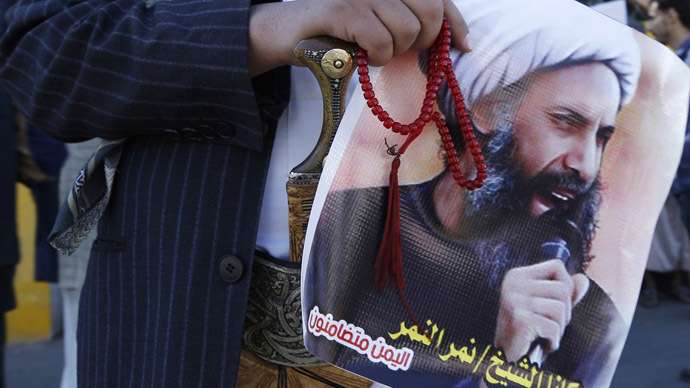-
Who was Nemer al-Nemer?
A Muslim Shiite cleric who grew up in the small town of Awwamiya in eastern Saudi Arabia and received his religious education in Iran before returning to the kingdom in the early 1990s. Known for his fiery sermons criticizing Saudi rulers, he was jailed several times between 2003 and 2008. A U.S. cable released by WikiLeaks from that period described him as a “second-tier political player” who was “gaining popularity locally…particularly with young people.” He later emerged as a leading voice behind Arab Spring-inspired Shiite protests that rocked the kingdom beginning in 2011.
-
-
Why was he executed?
Saudi security forces arrested him in July 2012 after a brief car chase in Awwamiya. The government called him a “seditious instigator” and said he and his companions opened fire at police officers who tried to arrest them. He was wounded during the arrest. His family says he was unarmed at the time. Mr. al-Nemer was sentenced to death in October 2014 on charges including disobeying the ruler, inciting sectarian strife and bearing arms against security forces. He was executed on Jan. 2, the same day when 46 others, mostly Sunni militants, were executed across the country on charges of terrorism.
-
How have Shiites responded to his execution?
Fiercely. The Iranian government and its allies in Lebanon and Iraq condemned it, while crowds stormed the Saudi Embassy in Tehran, throwing Molotov cocktails at the building and setting parts of it on fire. Small protests also broke out in his hometown. Further afield, the U.S. said it was “particularly concerned” about the execution and urged the kingdom to allow peaceful dissent. The United Nations and the European Union said the execution had the potential to heighten sectarian tensions in the Middle East.
-
What are the implications for Saudi-Iranian relations?
His execution threatens to worsen already strained ties between the two countries, which are already vying for power and influence in the volatile region. Officials from both countries often exchange accusations of meddling and blame each other for causing instability in the Middle East. In Syria, the Iran-allied regime of President Bashar al-Assad is fighting Sunni rebel groups supported by Saudi Arabia. The kingdom is also leading a military coalition fighting in its southern neighbor Yemen against Houthi rebels, who are supported politically by Iran.
-
How will it affect Saudi Shiites?
It risks escalating sectarian tension in the oil-rich eastern region of Saudi Arabia, where most of the kingdom’s Shiite minority resides. The area has witnessed sporadic protests and clashes with security forces since 2011. The execution “will further alienate the Shiites from the Saudi central government,” said Toby Matthiesen, a senior research fellow at the Middle East Centre of St Antony’s College at the University of Oxford, southern England. Shiites say they face discrimination in the kingdom. The government denies such discrimination and describes the protests as violent riots by a small group motivated by foreign parties—an allusion to Iran.









